Published
- 02:00 am
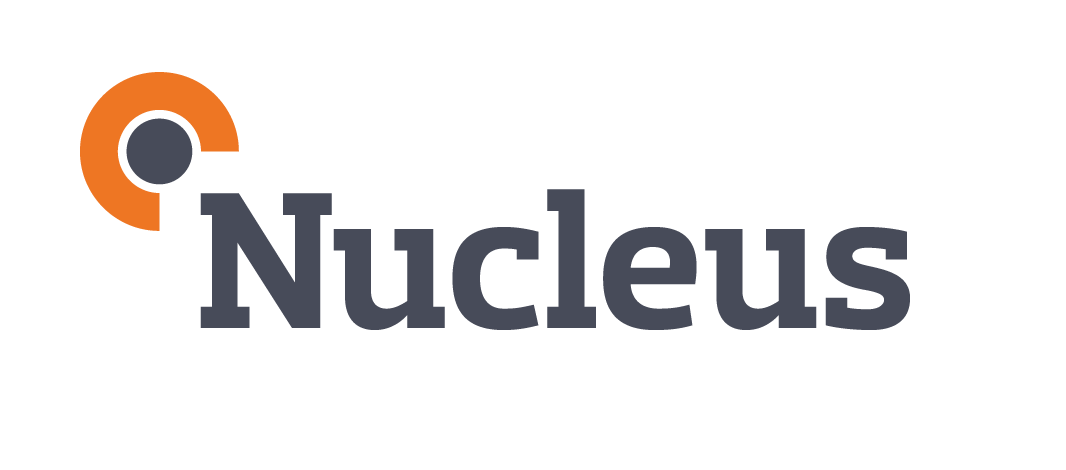
Nucleus Commercial Finance, the fintech revolutionising how UK SMEs access finance, has today announced that it has reached £2 billion in lending to SMEs.
This milestone has been reached following a year of record growth for the fintech which saw it lend over £450 million to UK businesses in 2020. This growth has been driven by Nucleus’ vital role in the roll out of the government's Coronavirus Business Interruption Loan Scheme (CBILS) and its application of technology to transform the lending experience for brokers and businesses.
The launch of its automated underwriting solution and the implementation of Open Banking has resulted in the fintech making 90% of application decisions within one hour. These growth drivers have enabled Nucleus to rapidly scale lending across its full product suite and bring new solutions to market, such as Business Growth Loans - a first-of-its-kind product to help businesses with flexible funding post-CBILS.
Chirag Shah, CEO, Nucleus Commercial Finance, said: “We’re delighted to have broken the £2 billion milestone just two years after reaching £1 billion in lending. This is a testament to the Nucleus team’s hard work and ambition to innovate and create the unique solutions that SMEs need.
“SMEs have faced a challenging 18 months, but we have demonstrated the crucial role fintech lenders play in providing the vital support businesses need to survive and thrive. SMEs and brokers have experienced the benefits of our automated underwriting and Open Banking solutions, and we are extremely excited to take them on the next stage of our journey as we continue to build and evolve our technology to deliver what the industry needs for the future.”
Related News
- 04:00 am

Canoe Intelligence (“Canoe”), a financial technology company redefining data management processes for alternative investors, wealth managers, asset servicers, and capital allocators, today announced the appointment of a new Chief Technology Officer, Vishal Saxena.
Vishal brings over 20 years of academic and industry experience within financial services to his new role. He will leverage his experience in team building, process optimization, software development, project management and alternative and private investments domain knowledge to support Canoe’s growing client base and strengthen the company’s product and technology strategy.
Prior to joining Canoe, Vishal was a Managing Director in the Blackstone Technology and Innovations group. During his tenure at Blackstone, Vishal oversaw application development for several business systems and enterprise platforms, including the integration of fund accounting systems with Canoe’s automated technology, and supported various corporate functions. Recognizing the efficiencies gained from Canoe at Blackstone, Vishal was motivated to join Canoe as an executive team member to aid in driving Canoe’s growth and industry adoption.
Prior to joining Blackstone, Vishal led various software development teams at Capital IQ, a division of Standard & Poor’s, where he was most recently Director of Data Technology. Before Capital IQ, he held various software development roles at Morgan Stanley, Citigroup and Sapient.
“We are thrilled to officially welcome Vishal to the Canoe team,” said Jason Eiswerth, Chief Executive Officer at Canoe Intelligence. “For almost a year, we’ve collaborated with Vishal while implementing Canoe technology at Blackstone and have been impressed with his ability. Vishal has a highly unique track record of scaling teams and advancing technology solutions within fast-paced environments. I have no doubt that he will help propel Canoe to the next phase of growth as we continue to expand our global client base and help firms automate their alternative investment processes.”
“I’m excited to join the Canoe team and look forward to contributing to the company’s success from both a technology and strategy perspective,” said Chief Technology Officer, Vishal Saxena. “Canoe is truly modernizing the alternative investment space by simplifying data extraction, standardizing data ingestion and automating manual business processes and reporting. I’m eager to get started.”
Vishal received a B.Tech. in Civil Engineering from Indian Institute of Technology, Delhi. He also received a Master of Engineering degree from Massachusetts Institute of Technology, Cambridge, and a Master of Science degree in Engineering from Georgia Institute of Technology, Atlanta. Vishal recently joined the board of Reach the World, a non-profit organization making the benefits of world travel accessible to classrooms.
This news follows Canoe’s announcement of the completion of its Series A extension funding led by clients, Blackstone and Carlyle and, and a new partnership with State Street.
Related News
- 01:00 am

Morehouse College and Spelman College to launch the Center for Black Entrepreneurship, focused on advancing the next generation of Black entrepreneurs
Today, Mastercard is pleased to announce grants totaling $5 million to two Historically Black Colleges and Universities (HBCUs), Morehouse College and Spelman College, to develop the Center for Black Entrepreneurship (CBE). The CBE will further the development of cutting-edge entrepreneurial programming, thought leadership, networking and academic and mentorship opportunities for aspiring Black entrepreneurs.
The philanthropic funding, delivered by the Mastercard Impact Fund, is part of Mastercard’s $500 million, five-year In Solidarity commitment to advance racial equity and economic opportunity through city programs to support Black communities, affordable financial tools and services, and expanding access to capital and resources for Black-owned businesses.
HBCUs Poised to Drive Black Innovation and Entrepreneurship
For more than 100 years, HBCUs have served as pathways to mentorship and economic mobility for Black students in pursuit of higher education. While HBCUs make up 3% of American colleges and universities, graduates, they produce 25% of Black STEM graduates. The power of their alumni networks and scholarship combined with the cultural and historical significance they possess uniquely position them to drive inclusive growth within the Black community.
With increased funding, HBCUs will be able to scale the already critical role they play in helping to train and develop the next generation of Black entrepreneurs and innovators.
“For over a century, HBCUs have played a critical role in nurturing professional talent and creating economic mobility in Black communities,” said Salah Goss, senior vice president for social impact at the Mastercard Center for Inclusive Growth. “By investing in HBCUs, Mastercard is intentionally choosing key institutions who we believe can be catalytic in furthering our commitment to ensuring that the digital economy works for the Black community, and for everyone, everywhere.”
Morehouse College and Spelman College to Establish the Center for Black Entrepreneurship (CBE)
In partnership with the Black Economic Alliance Foundation (BEA), Morehouse College and Spelman College are in the process of establishing the Center for Black Entrepreneurship (CBE) with financial support from Mastercard, among others. The CBE will help assemble, educate and empower a new generation of Black entrepreneurial talent. Specifically, the CBE will focus on eliminating opportunity gaps between Black entrepreneurs, professional investors and business builders by leveraging education, mentorship and access to capital and opportunity.
The CBE will be located on the campuses of Spelman College and Morehouse College in southwest Atlanta. Spelman plans to house it in its new academic facility, the Center for Innovation & the Arts, and Morehouse will house it within a new facility on campus. The Atlanta metro area is home to 57 colleges and universities and over 100,000 Black-owned businesses, making it a hub for Black students and entrepreneurs. Despite Atlanta being the ninth-largest metro area in the country and housing the second-largest population of Black people in America, there is a significant disconnect between venture capital firms that are traditionally West Coast-based and emerging Black student entrepreneurs, who are disproportionately located on the East Coast and in the South.
Mastercard’s grant will support the hiring of adjunct faculty, the creation of an online entrepreneurship program, experiential courses and pitch competitions that will enable students to put their classroom instruction in practice. In addition to the grant, Mastercard will provide in-kind support, such as digital technology training and access to Start Path, the company’s global startup engagement program created to help the best and brightest later-stage startups maximize their opportunity for success.
This investment is designed to have a transformational impact on economic growth for Black communities and builds on Mastercard’s commitment to bolster employee recruitment and HBCU programming in collaboration with the Congressional HBCU Caucus its brand’s 2020 Partnership Pledge.
Related News
- 06:00 am
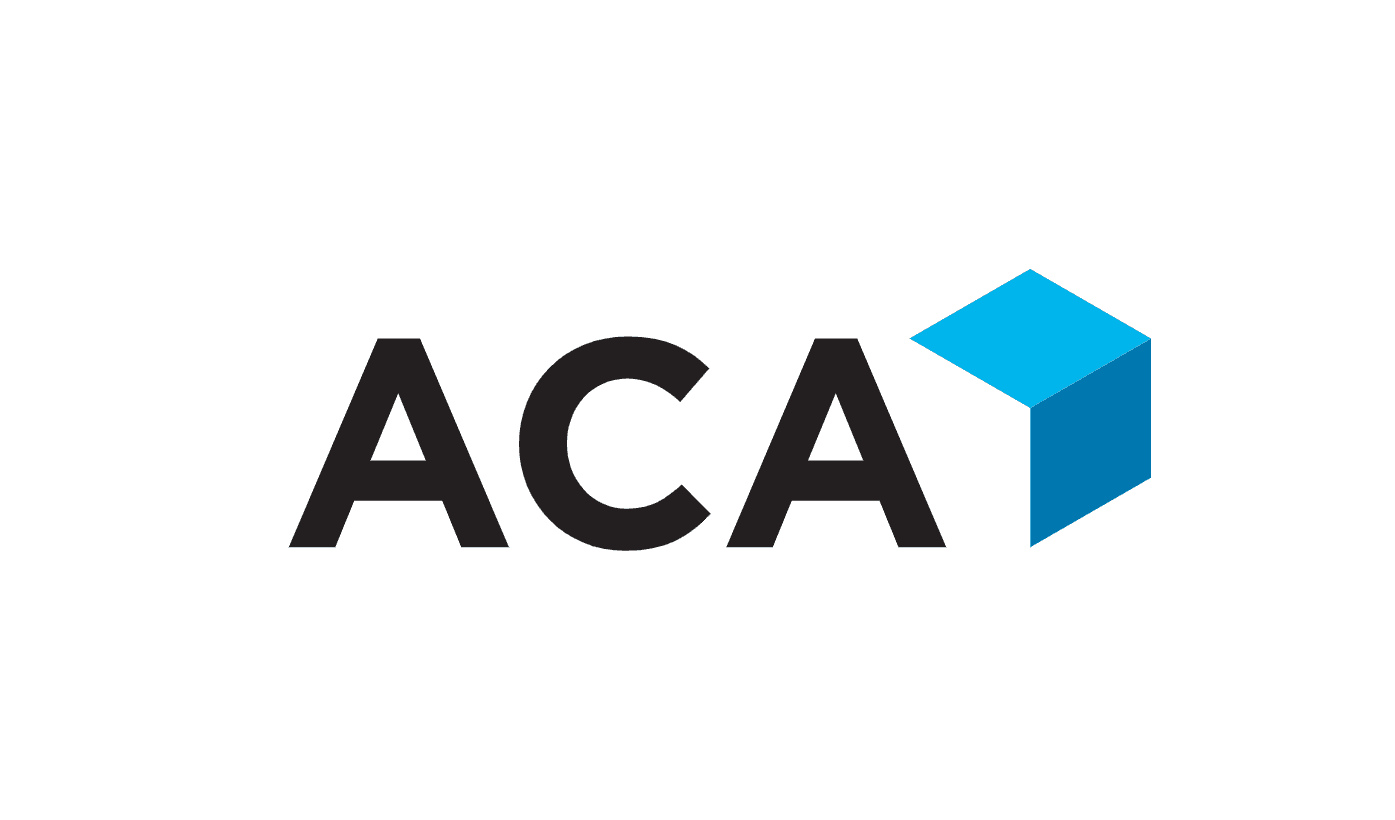
The integration expands ACA’s regulatory technology software suite to include eComms surveillance technology
ACA Group (ACA), the leading governance, risk, and compliance (GRC) advisor in financial services, has acquired Catelas, a sophisticated machine learning-based electronic communications (eComms) surveillance and investigations platform. Catelas ingests all types of eComms, trade alerts, and voice calls to provide buy- and sell-side firms globally with a single view of potential high-risk activities and behaviors across their organization.
The acquisition of Catelas further enhances the holistic surveillance capabilities of ACA’s RegTech platform. Catelas’ patented technology automates the mapping of how people connect and form groups within a firm, isolates collusion risk, and detects high-risk behaviors. In 2022, Catelas will integrate with ACA’s award-winning regulatory technology platform, ComplianceAlpha®. This integration gives firms unique oversight of control room activities, trade and eComms surveillance, wall crossing, bribery, and other material risks through one central platform.
Danielle Tierney, Senior Analyst at Greenwich Associates, said, “The demand for integration throughout the trade surveillance alert process is driving innovation across the compliance landscape. Firms who take action and invest in technologies to conduct surveillance across trading and communications are taking important steps to protect their employees, markets, and stay on the on top of regulatory demands.”
Eddie Cogan, ACA Group Partner and founder of Catelas said, “Electronic communications surveillance is critical to compliance and is becoming increasingly complex as firms move to Microsoft Teams, WeChat, Slack, Zoom, and other virtual communications tools. Globally, firms are at risk if they are not diligent about tracking and surveilling activity alongside personal and firm investments. We’re excited to join the ACA team and deliver Catelas’ advanced eComms analytics within ComplianceAlpha.”
Shvetank Shah, Chief Executive Officer, ACA Group said, “ACA’s vision is to build a fully integrated, holistic regulatory risk and compliance management platform that provides a single view into all activities that could put firms at risk. Bringing the Catelas team into the ACA family helps firms create a more efficient compliance operating model, better protecting them from regulatory fines and reputational damage while decreasing the overall cost of compliance.”
ComplianceAlpha® integrates risk and compliance activities, automated surveillance, ongoing monitoring, flexible workflows, enhanced analytics, and managed services delivery. Designed, developed, and supported by ACA’s experienced team that includes over 200 former regulators and compliance officers in addition to subject matter experts in cybersecurity and technology, the platform is used by over 1,000 leading financial services firms worldwide to build more scalable and resilient compliance programs.
Catelas was founded in 2007 and has locations in Boston, Chicago, and San Francisco. The firm’s surveillance platform is used by global banks, asset managers, and capital market firms to isolate the risks that could harm the business without overloading reviewers with false positives.
Related News
- 07:00 am

The Depository Trust & Clearing Corporation (DTCC), the premier post-trade market infrastructure for the global financial services industry, today announced that its Project Ion initiative, an alternative settlement platform that leverages distributed ledger technology (DLT), will move into a development phase following a successful prototype pilot with leading market participant firms. With six months of testing of the “proof of concept” now complete, DTCC has the quantitative data and qualitative feedback to build out a production-ready workflow and a roadmap for, subject to regulatory approval, future full industry integration and adoption.
Specifically modeled around a netted T+0 settlement cycle — but capable of supporting T+2, T+1, T+0 or extended settlement cycles — the Project Ion platform is designed to:
- Provide a clearance and settlement option for the industry leveraging DTCC’s core benefits of risk management and volume capacity, including netting and the trade guarantee of the CCP.
- Support new features, with seamless interoperability between the Project Ion platform and the classic settlement platforms at The Depository Trust Company (DTC).
- Ensure adherence to DTCC’s rigorous regulatory standards across resiliency, stability, security, risk, and controls.
As described in a new white paper, “Building the Settlement System of the Future,” the first phase of the Project Ion platform will support bilateral deliver order transactions that will be initiated by pilot participants through client nodes hosted by DTCC. Once launched, the transactions will be processed through the Project Ion platform and then passed to DTC’s existing systems for settlement processing. The Project Ion platform is anticipated to be launched in the first quarter of 2022, and will serve as a parallel book and infrastructure for limited bilateral transactions on DLT, with DTC’s existing systems continuing to remain the authoritative source of transactions.
“Cryptocurrency, digitized assets, DLT and other innovations increasingly are integral parts of the evolving financial services industry, and we are excited about the future opportunity in each of these areas,” stated Murray Pozmanter, Head of Clearing Agency Services and Global Business Operations at DTCC. “Project Ion has demonstrated that settlement in a T+1 or T+0 environment are effective use cases for DLT, and we look forward to working with our clients and the industry to launch the new platform.”
Project Ion’s functionality will be introduced in phases. Subject to regulatory approval, future phases are expected to extend the platform’s functionality over time to realize the reconciliation efficiencies offered by DLT. Other phases are anticipated to include the provision of access through a client-hosted node and expanding the transaction types processed by the platform.
DTCC has planned for early and later adoption of the functionality and technology offered by Project Ion, to ensure the phased roll-out is responsive to clients’ individual development agendas. For clients, this means that while the general industry can move ahead to achieve T+1 accelerated settlement on DTCC’s classic systems, those clients ready to integrate onto the ledger can begin development efforts and start to ready their firms for the future operating model without waiting for full-market adoption.
Related News
- 04:00 am
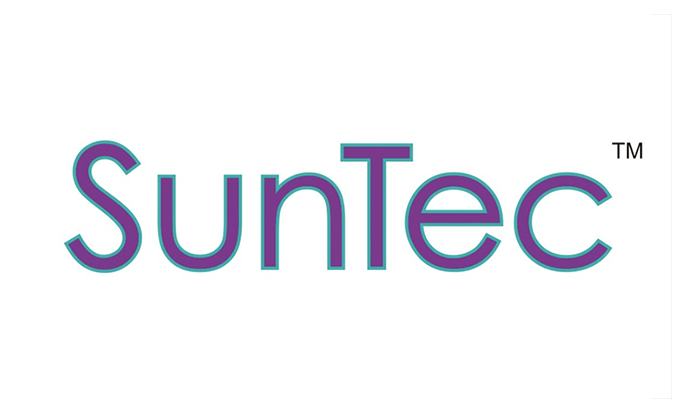
India-based SunTec Business Solutions, the world’s #1 relationship-based pricing and billing company, today announced a major milestone in Oman, with six of the 10 local banks in the country going live with SunTec’s GCC VAT Compliance Solution. Oman implemented a nationwide VAT regime on April 16, 2021, in line with the transition to VAT across all GCC countries.
Despite a short notice for implementation, SunTec’s client banks in Oman were able to execute full VAT compliance well before the deadline by capitalizing on SunTec’s uniquely designed solution that integrates easily and sits as an overlay on top of banks’ complex IT systems.
SunTec’s Indirect Taxation Solution is used by more than 50 banks and financial services providers in the Middle East and India for VAT or GST compliance with 30 customers in the GCC region alone. Nearly one billion transactions are processed annually through SunTec’s GCC VAT compliance solution.
Nanda Kumar, CEO and Founder at SunTec said, “We are glad to recognize that a number of leading banks in the GCC region are choosing SunTec as their preferred technology partner for full-scale VAT compliance. This is an endorsement of our world-class Xelerate platform, which is designed from ground up to help banks digitalize and elevate their customer experiences with minimal efforts and changes to their core infrastructure.”
Amit Dua, President - Client Facing Groups at SunTec said, “It is a matter of pride that six leading banks in Oman chose us as their technology partner for VAT compliance. This overwhelming adoption of our product not only underscores our market understanding but also the robustness of our pre-configured product that seamlessly integrates with the bank’s systems despite them running complex IT landscapes and by fully accommodating their local, region-wide needs.”
SunTec’s GCC VAT Compliance Solution is designed to meet the unique needs of banks and financial services firms in automating the entire VAT compliance process, including centralized rule-based tax determination, input tax recovery, tax invoice, reconciliation, corrections, adjustments, statements, and regulatory reporting. The solution can easily integrate with existing IT systems and is further designed to process all taxable transactions across business lines and applications with reduced cost of compliance. It also helps mitigate potential risks of compliance violations, penalties, and loss of reputation.
Related News
- 01:00 am
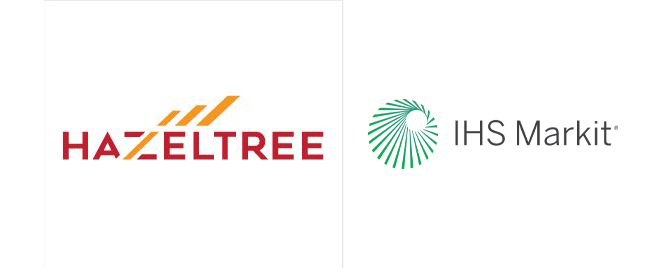
Hazeltree, the leading provider of integrated treasury management and portfolio finance solutions to alternative investment managers, and IHS Markit, a world leader in critical information, analytics and solutions, today announced a strategic alliance to offer clients an integrated treasury and portfolio finance solution powered by IHS Markit’s industry-leading Securities Finance dataset. Our integrated solutions enable our clients to trade and operate more directly, transparently and efficiently and to obtain a composite overview of their entire positions, margin and risk profile.
Hazeltree’s products help over 200 leading hedge fund managers globally to transform how they manage counterparties to increase returns by 40-80 basis points, optimize fees, minimize exposure, and protect assets. Hazeltree’s market-leading position is best evidenced by the fact that 8 of the world’s top 20 hedge funds are powered by Hazeltree’s treasury products.
“Our mission is to not only provide the broadest, deepest and most accurate data and analytics but to also assist our clients across all segments address and solve other challenges they face when navigating the stock loan market "said Paul Wilson, Managing Director and global Head of Securities Finance at IHS Markit. “Bringing together Hazeltree’s expertise and IHS Markit’s data to produce an integrated solution fits completely with this objective and is exactly what our clients need.”
“Given the significant overlap of the IHS Markit and Hazeltree customer base, it makes great sense to provide our mutual clients with this valuable capability,” Sameer Shalaby, President and CEO, Hazeltree. “We are excited to work with IHS Markit to support alternative investment managers with our industry-leading combined solution.”
Related News
- 02:00 am
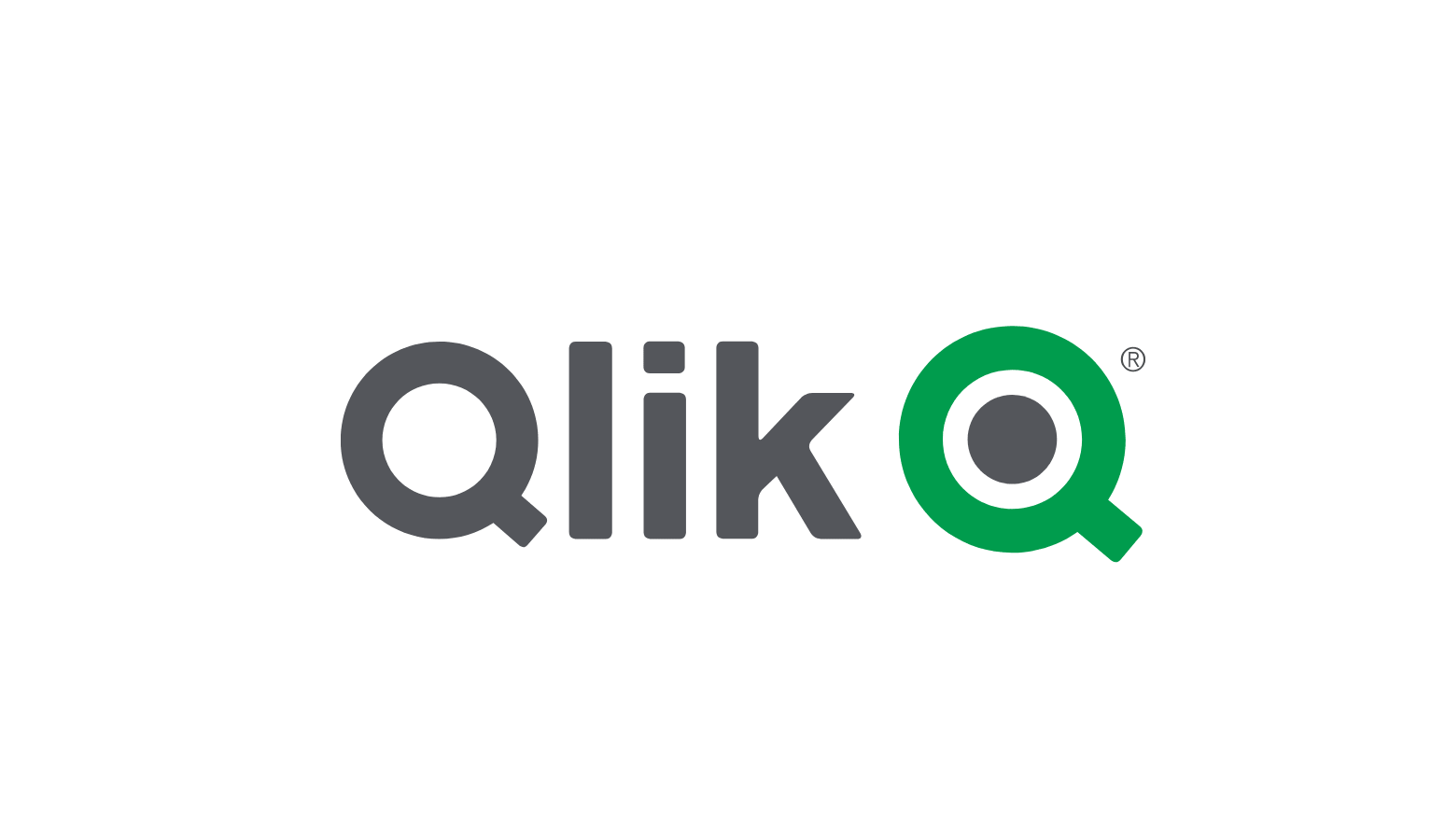
Regulatory Obstacles, Lack Of Trust and Data Pipeline Limitations Slow Down Adoption Of Predictive Analytics, Finds New Research From Qlik
New research from data leader Qlik® reveals how concerns around trust and regulatory compliance, as well as weaknesses in the data pipeline, are slowing the adoption of predictive analytics in Financial Services (FS), preventing UK organizations from reaping the full value from their data and maximizing the potential with business intelligence platforms.
The report “Unleashing the Potential of Predictive Analytics in Financial Services”, which surveyed more than 500 UK IT leaders in FS, exposes the slow uptake of predictive analytics. More than a third (38%) of British financial institutions have five or fewer predictive analytics use cases currently in operation – in stark contrast with the leading 7% of institutions which have each introduced 50 or more.
Key issues IT leaders in FS face when implementing predictive analytics include:
- A question of trust – Every decision a financial services organization makes can have a major impact on a customer’s life, from agreeing to an overdraft to making payday or approving a mortgage application. Yet one third (30%) of IT leaders admit fearing algorithms could unfairly impact their customers. This is perhaps unsurprising given only half of respondents (50%) trust decisions made by predictive analytics solutions are without bias and are always accurate (45%). Over two fifths (43%) of respondents go far enough to say they wouldn’t even trust predictive analytics to manage their kids’ pocket money.
- Regulatory risk – In such a highly regulated industry, 44% of IT leaders fear they could be held personally responsible for decisions automatically triggered by predictive analytics solutions – rising to 81% amongst those working in funds and investments. The regulatory burden also weighs heavy on them, with 46% reporting it outweighs the benefit the solution could offer.
- Flaws in the data pipeline – IT leaders also cite a number of technical barriers to implementation. Two fifths face issues with data quality (40%), data silos (40%) and the speed of data integration (36%). Data privacy (30%) and the use of inaccurate or outdated data sets (30%) were also common concerns. Just over two fifths (43%) also fear they don’t have the skills to implement predictive analytics.
Improve trust by marrying human & machine intelligence
Many of the concerns relating to predictive analytics are underpinned by a lack of human oversight of its decisions – both in terms of outcomes and explainability. To overcome these issues, more than two thirds (69%) of IT leaders in FS advocate incorporating predictive analytics into business intelligence (BI) platforms.
Most believe integrating the powerful forecasting of predictive analytics into the BI platforms that already inform employee decision-making has the potential to:
- help organizations comply with regulatory frameworks (72%)
- significantly improve employee decision-making (70%)
- deliver a better customer experience (68%)
- identify areas of cost saving (68%)
- democratize forecasting (67%)
However, ensuring employees have the requisite data literacy to understand, question and apply the predictive forecasts to their decision-making process is key to maintaining trust and compliance. Three quarters (76%) of IT leaders in FS highlighted the importance of data literacy training in enabling employees to recognize the limitations of the technology. And in helping them explain to customers and other stakeholders how decisions using predictive analytics are made (77%).
“We are very clear about what our customers, our members, mean to us, and that extends to how transparent we are in decision-making processes. We would never want to make a customer feel like decisions were being made about them that couldn’t be explained. A human has to be able to explain those decisions,” said Richard Speigal, BI Centre of Excellence Leader at Nationwide. “Integrating predictive analytics into BI empowers our organization to harness its benefits for improved employee decision-making, while retaining upmost trust that it will only result in fair outcomes for our customers and stakeholders.”
“The financial services industry is undergoing rapid data transformation. Predictive analytics will play a key role in empowering employees to take more informed actions, with forecasts helping them consider what might happen, as well as what has happened before, when making decisions,” said Adam Mayer, Senior Manager at Qlik.
“However, our research has shown that many IT leaders are yet to fully trust the insights from predictive analytics and the impact these decisions could have on their customers,” continued Mayer. “This trust needs to be built from the ground up. Real-time, hyper-contextual information, with clear data lineage and robust governance, must feed the analytics data pipeline, revealing insights that data literate employees can discerningly use to inform decisions. This will empower financial services organizations to look forward and take action, rather than react to business moments as they arise. Helping them truly achieve Active Intelligence from their data.”
Find out more in the full report here: Unleashing the potential of predictive analytics in financial services
Related News
- 08:00 am
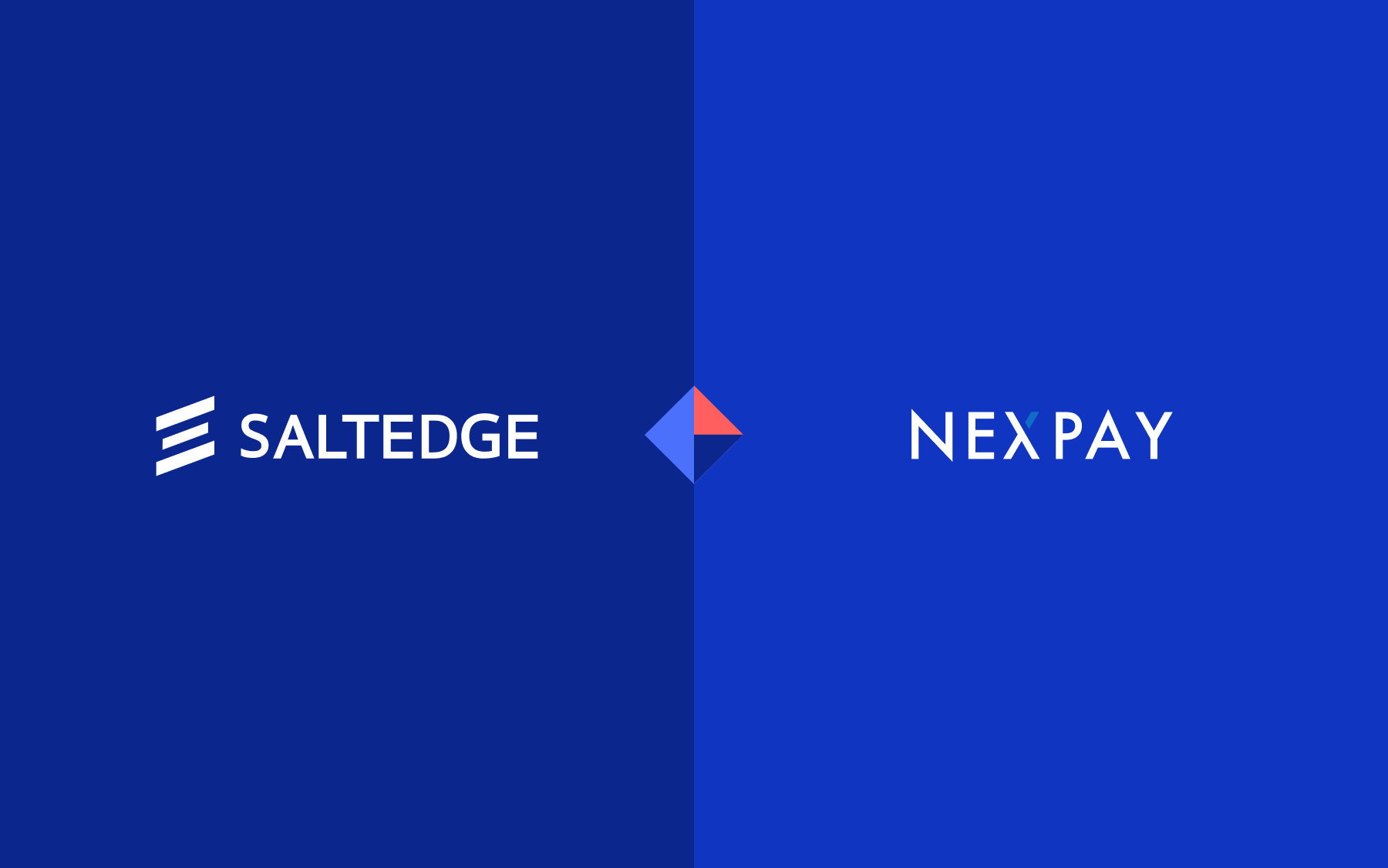
Banking infrastructure provider Nexpay has partnered with Salt Edge, a leader in open banking solutions, together offering enhanced customer protections and SCA for the digital assets industry.
In order to maintain a high-security level in the new era of open banking, Nexpay is now running SCA and all authentication processes through the app developed by Salt Edge. The Authenticator app is a SaaS solution that meets all the SCA requirements and runs dynamic linking for secure payments. The technology uses data encryption and anonymisation during the customer journey.
Nexpay is built on principles of excellence in security, reliability and convenience, which is why we chose to partner with Salt Edge. The Authenticator app is the best solution on the market to fit our high security requirements. An added bonus is that we think Salt Edge is providing a much better UX compared to the SMS-based two-factor authentication processes we are replacing.
Uldis Teraudkalns, CEO at Nexpay
Working mostly with enterprise-level accounts, Nexpay’s new partnership will provide its customers with an increased level of flexibility and security for their digital assets platforms. End-customers will see in the app key payment details before confirming the payment, thus gaining confidence in their actions. The authentication journey was optimised for end-customers’ convenience – creating streamlined user experiences with advanced protection.
Having in place a mechanism that guarantees security of customers’ actions and privacy of their data is paramount in the trading market and the overall financial industry. We’re thrilled to assist Nexpay on its path toward being a global leader in the digital assets industry – by offering its clients security and flexibility in their platforms and products.
Related News
- 08:00 am
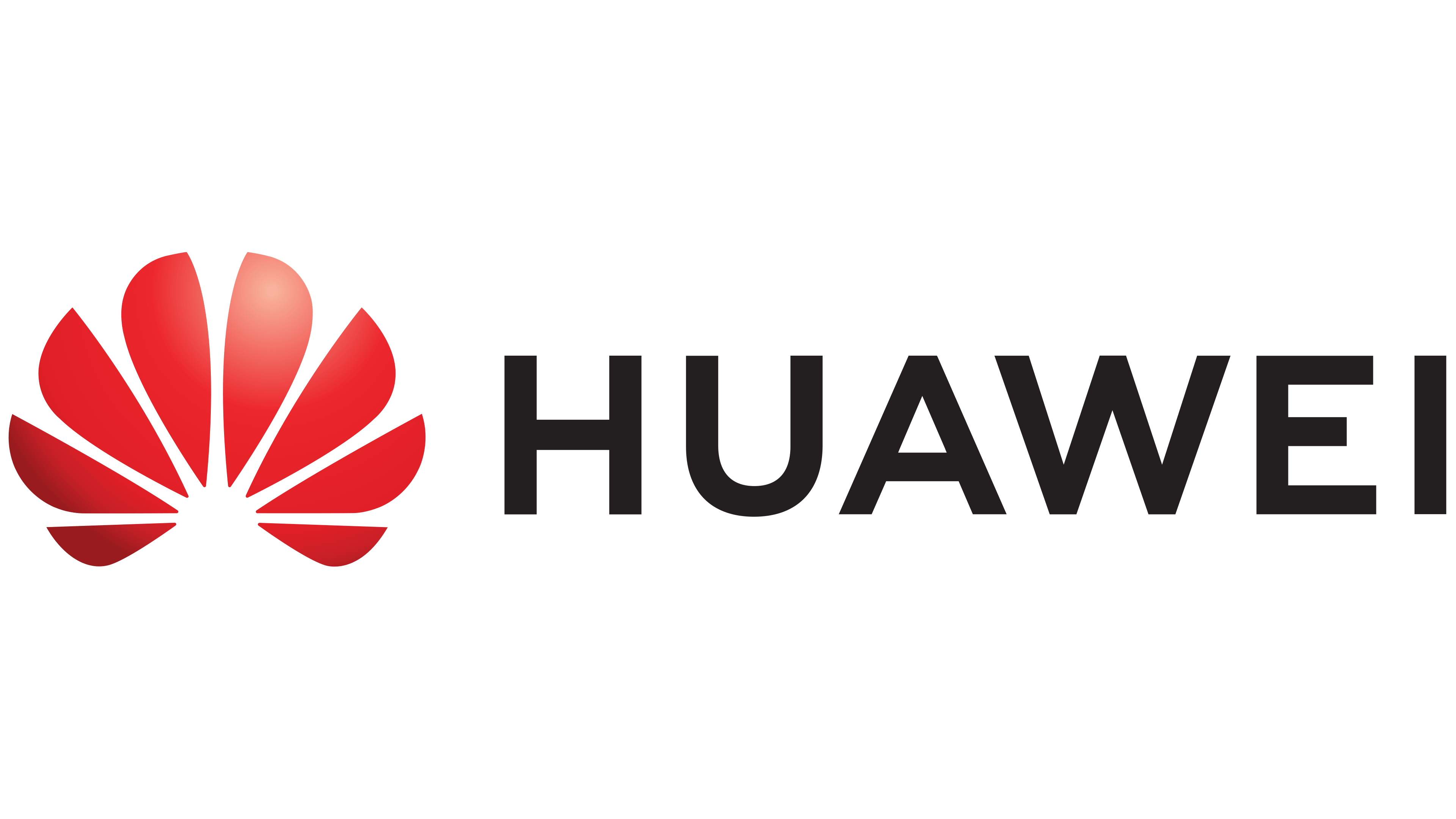
Initiative to nurture tech solutions to common challenges in personal finance
A unique collaboration between Huawei’s regional Ecosystem Development business and its R&D centre in Finland will lead to the launch of the Digital Finance and Security Innovation Lab (Fin²Sec) in September. Designed to address the increasingly urgent requirement for banking, finance and payment services in Europe to become digital-first, Huawei is looking to collaborate with multiple industry stakeholders to accelerate progress and satisfy customer demands.
Establishing the Helsinki-based Lab as an incubator in which ideas and programs can be discussed and developed, Huawei is aiming to create a base for technology, shape improved industry standards and develop products and services which are fit for the needs of today. The Lab will also focus on facilitating and supporting the financial services sector through innovative technology solutions that improve customer experience and loyalty. The overarching objective will be to bring secure, digital financial services and improvements to payment processes to every person, home and organisation to encourage a healthy and accessible financial life.
In preparation for launching the Digital Finance and Security Innovation Lab, the Huawei team, as a donor of Helsinki-Aalto Institute for Cybersecurity, is working closely with Aalto University, and has also invited pan-European banks, FinTechs, and industry associations to get involved. Their expertise and future plans, as well as their input on the challenges they face, which are inhibiting progress, will be the focus of the Lab.
“Unless we work together to strengthen the financial ecosystem, we will continue to struggle to bring secure digital services and products to people in a way that they can easily access, in particular for those that are unfamiliar or feel uncomfortable with the digital transformation,” said Adam Rybusiewicz, Director of Financial Vertical Eco-Development and Partnerships for CEE, Nordics and Turkey at Huawei Consumer Business Group and one of the innovation ab architects. “The purpose of the Lab is to generate not just new concepts, but to share experiences and challenges, and foster successful initiatives or business models that can be emulated across the finance, banking and payments sector.”
Similar projects that Huawei has launched previously with security improvement in focus have led to significant innovation. An example of this is Huawei’s Digital Car Key feature, an NFC-based app which allows drivers to lock or unlock their car and start it using their smartphone¹.
"Huawei Finland R&D has been working on consumer device security for almost one decade, and the resulting hardware-assisted trusted environments today host or support critical security services like Huawei Pay, WeChat Pay, car keys and authentication solutions in Huawei mobile phones. We look forward to sharing our expertise and promote our device security capabilities to the Fin²Sec ecosystem together with our university partners," said Dr. Jan-Erik Ekberg, Head of Helsinki System Security Lab (HSSL) in Huawei, where he is responsible for Platform Security R&D, especially in consumer devices.









